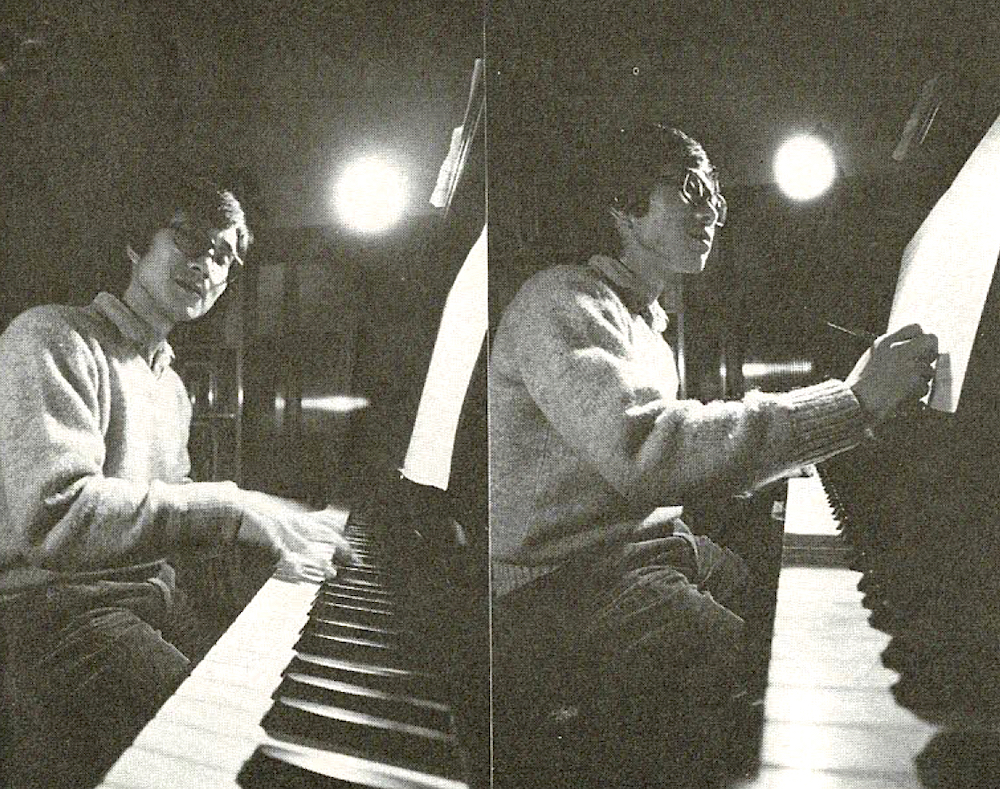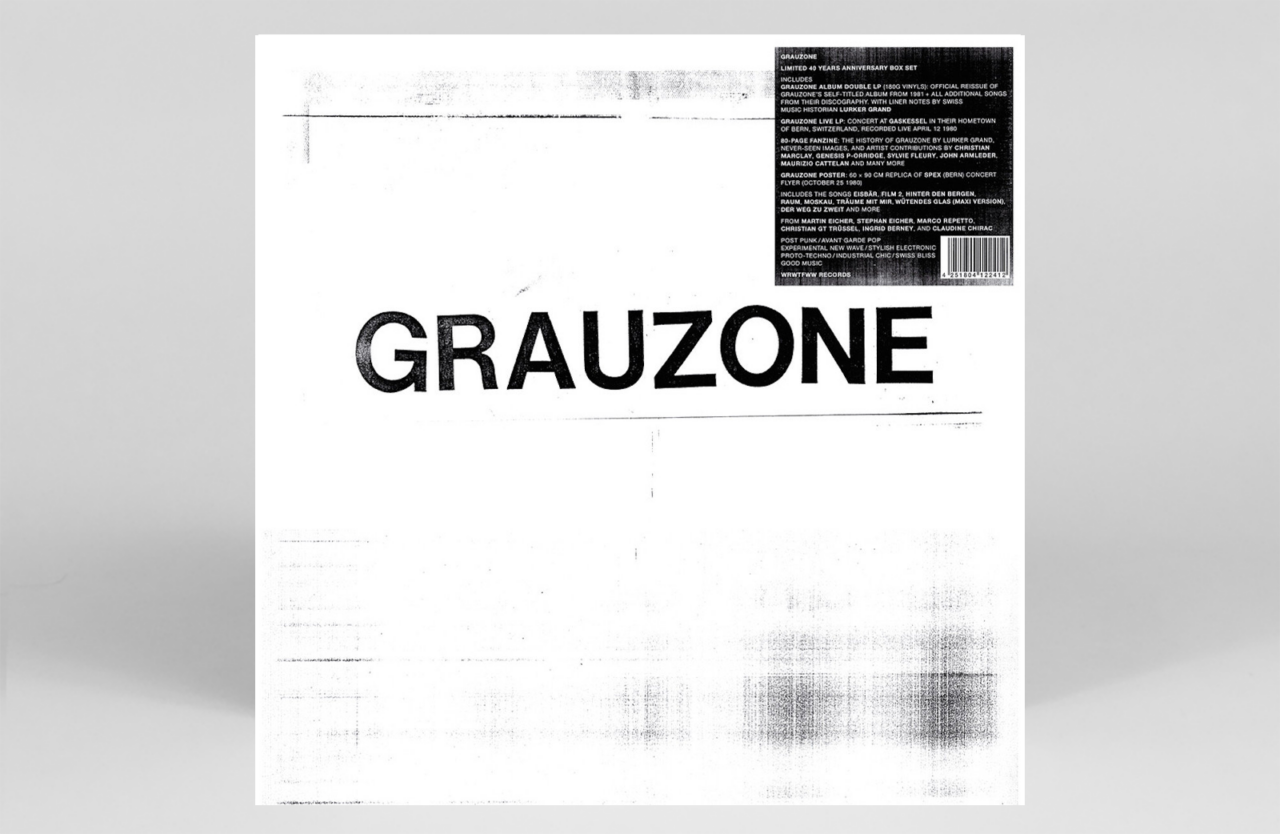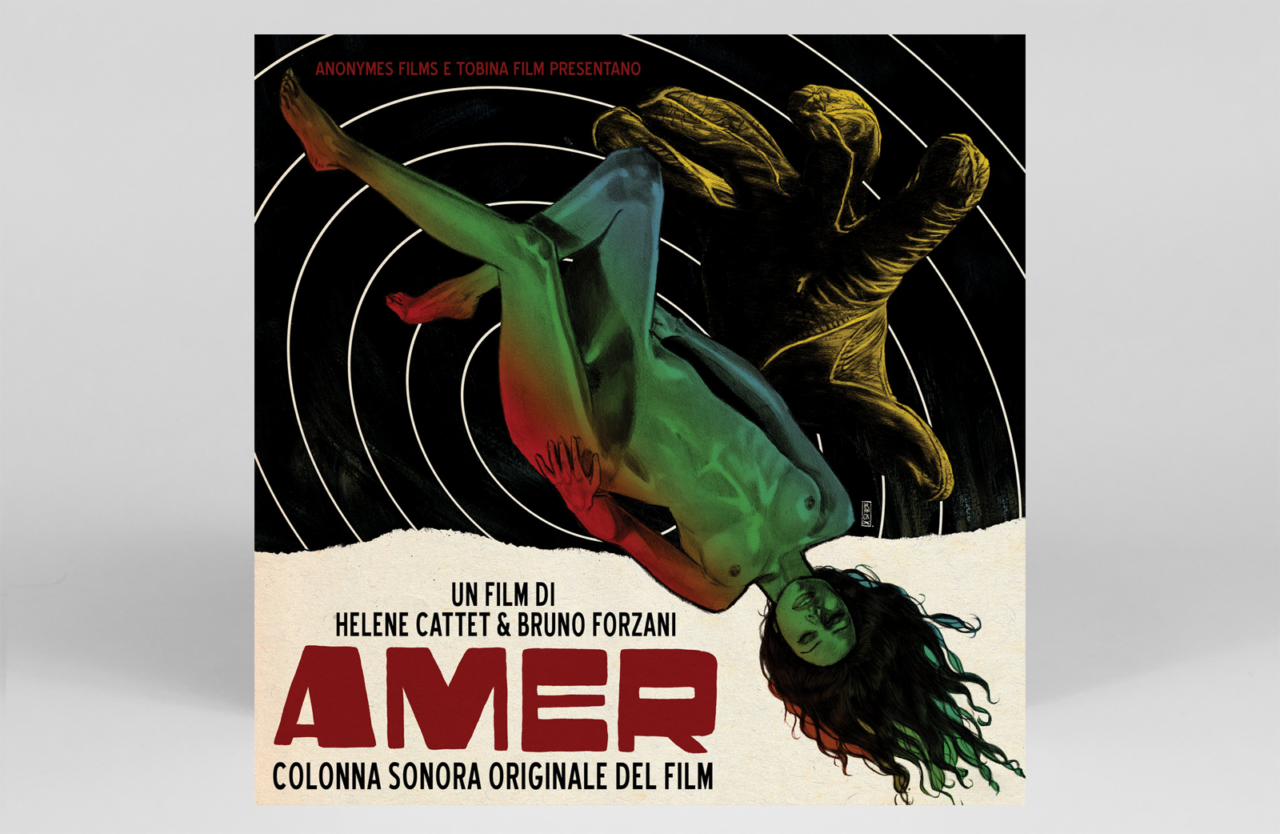
Label Dive: WRWTFWW Records
In Label Dive, we take a look at labels–big and small–that have been bringing top-quality vinyl releases to fans across the world.
Since its inception in 2013, WRWTFWW (We Release Whatever the Fuck We Want Records) has been living up to its name by providing listeners with a deeply varied collection of reissues and new releases.
Founded by Olivier Ducret (also of Mental Groove Records) and producer Stéphane Armleder in Geneva, Switzerland, WRWTFWW has racked up a discography featuring everything from reissues of Japanese composer Midori Takada to new releases from Gareth Quinn Redmond and the soundtracks to cultural phenomenons like Ghost In The Shell and The White Lotus.

We catch up with Ducret and Armleder to uncover the story behind the label’s name, the lessons learned from running a label and the pair’s picks for essential WRWTFWW releases.
What are the origins of the label? How did it come about?
We both had long-standing involvement in music, including a record shop, labels, parties in and outside of Geneva, music making and DJing. Mental Groove (Olivier’s label and record store) started back in 1989, inspired by NME and the Summer Of Love, plus the local DIY squat culture. It introduced club sounds to the country, and the shop was a hub for aficionados to meet and share.
Villa Magica (Stephane’s label) connected music and the art world via releases and extravagant Christmas parties at MAMCO (Geneva’s Museum of Modern and Contemporary Art), and built a kind of niche bridge between Paris and Geneva’s hip-hop meets electronic scene in the early 2000s. We naturally became friends in this little Geneva music world and bonded over our common love for genre cinema. We always felt like we should do some kind of label project together but didn’t really know what it should be.
It finally happened through a shared epiphany moment in April 2012 at 4 am while attending a ‘so-bad-it’s-good’ movie marathon, when a superb Giorgio Moroder-type track started playing in a clip from an obscure French mondo documentary from 1984. Instant bliss. We investigated and found the composer of the soundtrack, André Georget, and the label was born with the La France Interdite soundtrack. Voilà!

The WRWTFWW name emerged from brainstorming for a unique, possibly quirky name reminiscent of French low-budget ’70s comedy movie titles like Mieux vaut être riche et bien portant que fauché et mal foutu or Faut pas prendre enfants du bon dieu pour des canards sauvages [Who Is That Splashing in the Mediterranean? or Don’t Take God’s Children for Wild Geese]. If memory serves well, other contenders included names like “The House Of 10000 Dancing Gremlins Records.”
Would you say WRWTFWW has a guiding ethos?
We wanted to release so many things, in so many different genres, without worrying about reception. We decided to embrace the label’s name and move away from what audiences traditionally expected, a certain continuity in the direction of a label, a certain genre, scene, or concept associated with it. People like a variety of different things and it’s become a more accepted approach for labels today, it was not necessarily the case when we started 11 years ago.
The whatever we want in the label’s name follows our evolving taste and translates into an ever-changing (yet somehow loyal) blend of soundtracks, ambient and jazz music, but many other flavours as well. It can, sometimes, lose the listener, but then again, otherwise, it would be boring. We’re so happy, even proud, of having the delicate sounds of Midori Takada alongside Richard Band’s 80s sci-horror comedy classic movie soundtracks or Pizza Hotline’s liquid drum n’ bass. It’s what we love. Do what you love with love, it’s the label’s motto.

You’ve put out records all the way from the soundtrack to cultural behemoth Ghost In The Shell to rising underground artists like Gareth Quinn Redmond. Is there a common factor or spark that you feel is consistent across all of the music you release?
Music we love and chance meetings. We found Gareth’s first album Laistigh den Ghleo on Bandcamp, digital-only back then. Conceptually it was derived from the work of Japanese minimalist composer Satoshi Ashikawa which we were working on at the time, so we got to meet him in London, had a few (more) beers, and there you go, good feeling, simple and effective, and we’re now looking at a fourth album with him.
It was a similar scenario with Midori Takada. We visited Japan, met her through Masahiko Satoh, shared a meal, talked about everything but music, hung around and just had a wonderful time. It’s amazing to have a human connection rather than just emailing back and forth. That’s when we know it’s gonna be a good project.
Have you ever had any disasters where you’ve been desperate to put out a record but due to licensing or audio quality it hasn’t happened?
We’ve encountered projects with poor audio quality that didn’t meet our standards, but we never feel desperate. There’s such a wealth of music out there, one life wouldn’t be enough to go through all of it. We enjoy the challenge of licensing, approaching it like a fun detective game, but sometimes it’s just not possible. The real loss is when the music remains inaccessible for the audience.
Sometimes the licensing process brings some surprises. Once we had to license a track from an Italian artist, searched for the right owners, found contacts, did some e-mailing and the rights owner answered: “Call this number tomorrow 10am”. Which we did and arranged a deal on the phone, got a text message with a picture of someone’s private bank details, wired the money, got the audio, and voilà. The old-school way. It perfectly matched the release’s vibe.

Is there a particular record that was a breakthrough moment for the label?
Many records were for us. Of course, Through The Looking Glass by Midori Takada took the label to another level, the Ryo Fukui releases allowed us to launch our We Release JAZZ sister label, our collaborations with the great Bruno Spoerri and the Grauzone discography reissues manifested our love for Swiss music history, but also Dominique Guiot’s L’Univers de la Mer, a library music album and no-so-hidden gem got a massive (and slightly unexpected) public reception.
There are also the odd ones like Greg’s Odyssey which apparently is the only Amiga demoscene soundtrack ever pressed on vinyl! The recent Quiet Logic release (Mixmaster Morris, Jonah Sharp, Haruomi Hosono) is a big one for us too.
Talk to me about mastering and audio quality. Do you have any specific criteria or processes for managing and updating audio quality?
It’s of the utmost importance. For mastering, cutting, and pressing, we mainly work with German audio engineer Sidney Claire Meyer at Emil Berliner Studios (they developed the gramophone and the record to market maturity and their vision led to the founding of the Deutsche Grammophon Gesellschaft) and longtime Welsh partner Clovis Jean XV at Château de Cranves-Sales. With both of them, we can achieve a perfect–as close as this is possible in the vinyl world–result in terms of audiophile quality.
We always target the best possible results, which includes, first and foremost, when we talk about reissues getting the master in good shape, then, if not, some alternatives often are surprisingly close to perfection. But that demands more quality controls and possibly redoing a part of the process until we, the artist and us, are all satisfied.

You’re over a decade into WRWTFWW, are there any major lessons you’ve learned about running a label?
Keep the fun and joy going, just work releases you like to do regardless of the trend or the fear of disappointing your audience. Be certainly serious about what you do, but keep a dose of teenage humour in, and make sure excitement is alive. Make sure when you unpack a new release, goosebumps are there, and you look at the album from all angles with children’s eyes unboxing a Christmas present. Put the needle on the record, sit, and listen while checking the packaging again.
Possibly find a typo, there is always one somewhere and those only appear then. When this feeling is not there anymore, you better think of another activity or retire to a remote cottage.

What’s coming next for the label in 2024?
More originals from British Soul/Jazz artist Mo Kolours produced by Tony “Moody Boys” Thorpe, a drum and bass split EP by Pizza Hotline and Swedish Mitch Murder, more delicate sounds from Gareth Quinn Redmond, inspired by Mark Hollis and Satoshi Ashikawa, and a reissue of musician/photographer Danny Scott Lane’s early cassette-only release–a brilliant and simple album with shades of early Sakamoto and Yoshio Ojima.
We also have beautiful reissues in the works, from Daisuke Hinata and the Interior crew, Yoshio Ojima, Michel Moulinié, Mixmaster Morris and more. We’re working on more soundtracks (anime, movies, TV series and video games!). And in parallel to all of this, there are quite some clothing/merch-related ideas we’re dabbling with.
WRWTFWW Records essentials

Sora
Re.sort
Favourite song: “Revans”
A very heartwarming gem from one of the most overlooked electronic albums of the early 2000s.

Midori Takada & Masahiko Satō
Lunar Cruise
Favourite song: “Ancient Palace”
Japanese answer to Brian Eno’s “An Ending (Ascent)”.

Grauzone
40 Years Anniversary Box Set
Favourite song: “Raum”
Angst, angst, angst, angst, angst, angst!

Mo Kolours
Original Flow
Favourite song: “Time”
Soul-stirring track about the illusion we call time.

Pierre Barouh
Le Pollen
Favourite song: “Le Pollen”
A heartfelt dedication to inspiration and those who inspire.

Various Artists
Amer (Original Motion Picture Soundtrack)
Favourite song: Stelvio Cipriani – “La Polizia Ha Le Mani Legate”
The Police tried to ban this infectious Italian 70s groove but failed to.
Read more: Diving into Be With Records









